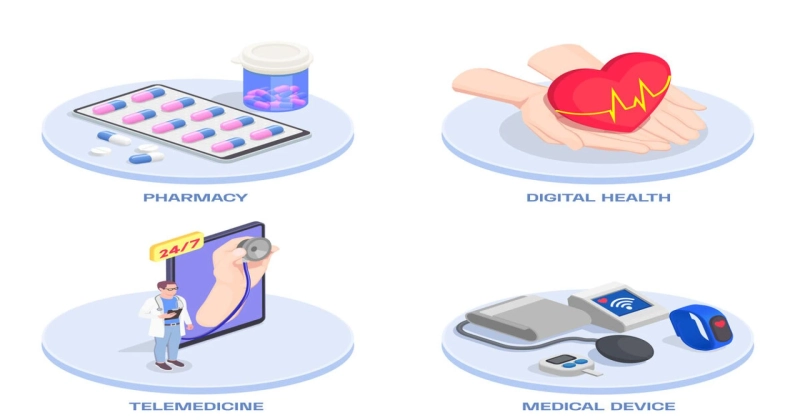Introduction:
In the last few years, digital health platforms have changed the healthcare landscape, offering new ways to care for, manage, and engage with patients. They use technology to make healthcare more accessible, efficient, and of higher quality, it’s a big shift toward patient-centricity. This blog will look at the impact of digital health platforms and what it means for the future of healthcare.
- Accessibility
Digital health platforms have broken down the barriers to healthcare access by giving patients convenient ways to connect with healthcare providers remotely. Through telemedicine and virtual consultations, patients can get medical advice and treatment from the comfort of their own homes, overcoming geographical barriers and making access more accessible, especially in rural or underserved areas.
- Patient Engagement
One of the biggest benefits of digital health platforms is patient engagement. They give patients tools to monitor their health metrics, access their personal health information, and be more proactive in their treatment. Features like mobile apps, patient portals, and wearables empower patients to take control of their health and make informed decisions.
- Care Coordination
Digital health platforms enable seamless communication and collaboration between healthcare providers so care is more coordinated and continuous. Electronic health records (EHRs) allow for secure data sharing across different healthcare settings, so providers have access to the whole patient record. This interoperability is more efficient, reduces medical errors, and supports holistic patient care.
- Data and Personalized Medicine
Digital health platforms have enabled the collection and analysis of massive amounts of health data, opening up personalized medicine and targeted interventions. Artificial intelligence (AI) and machine learning algorithms can analyze patient data to identify trends, predict health outcomes, and recommend personalized treatment plans. This data-driven approach not only improves clinical decision-making but also enables providers to deliver more precise and effective care.
- Challenges
Digital health platforms bring benefits but also challenges around data security, regulatory compliance, and access. Patient privacy and health information integrity are key. Digital literacy and access to technology will also be a barrier to adoption, so we need inclusive and equitable healthcare solutions.
In conclusion, digital health platforms represent a paradigm shift in healthcare delivery, offering unprecedented opportunities to improve patient outcomes, enhance efficiency, and drive innovation. As these platforms continue to evolve, their impact on the future of healthcare will likely be profound, shaping a more interconnected, patient-centered, and data-driven healthcare ecosystem.
Whether you\'re a healthcare provider, policymaker, or patient, understanding the potential of digital health platforms is crucial in navigating the future landscape of healthcare delivery.


